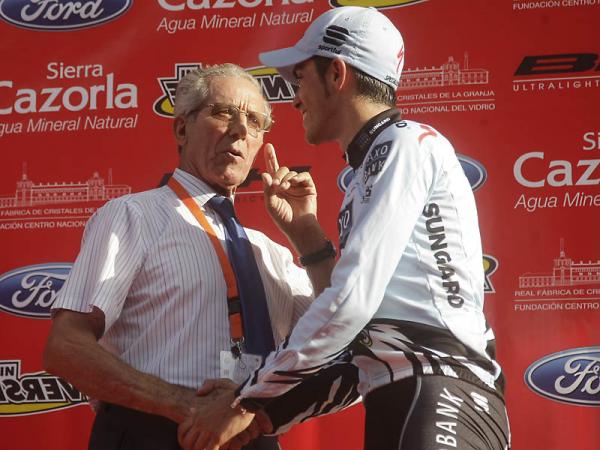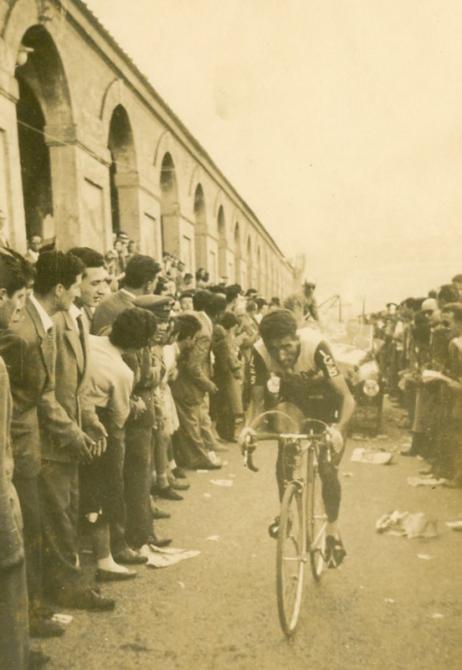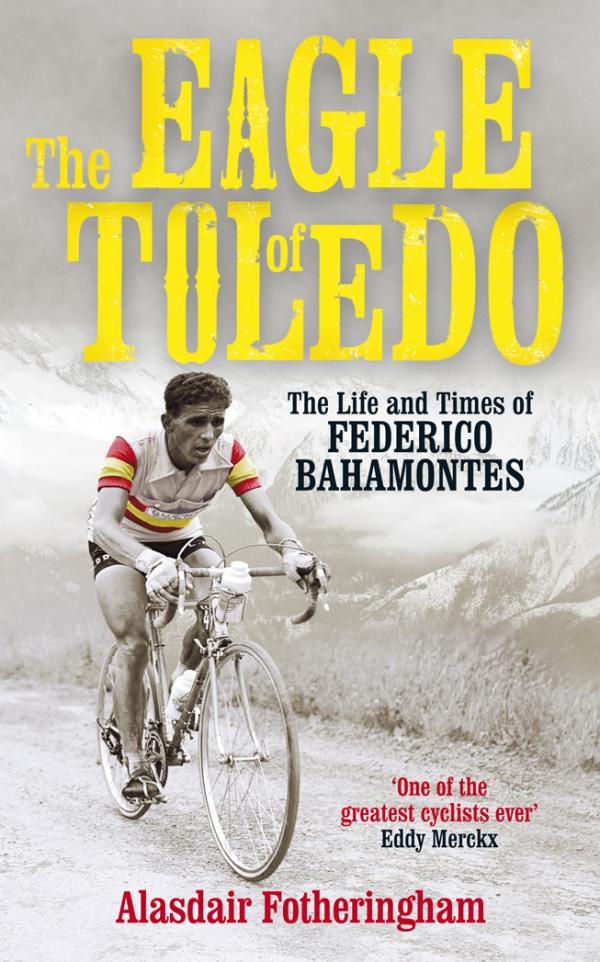Bahamontes recalls first Dutch Tour de France Grand Départ
Details of 2015 Utrecht start to be revealed on Thursday



It may be nearly 60 years ago, but as the Dutch city of Utrecht and ASO prepare to unveil the details of the 2015 Tour de France start on Thursday, Federico Martín Bahamontes, winner of the King of the Mountains in the 1954 race, still recollects perfectly well what Holland’s first ever Grand Départ was like 59 years ago.
"The team presentation before it all started in Amsterdam was spectacular," Bahamontes, now a hale and hearty 85, tells Cyclingnews.
"They got us all together in a huge tent in the middle of a very big square and called us all out one by one and gave us presents. Huge crowds, too. I was pretty nervous at the start of the first stage, I remember I kept on spinning the pedals on my bike on the startline like I was an amateur before we actually got moving, because it was my first Tour."
"But they made us very welcome, the Dutch were very hospitable," Bahamontes continues. Indeed, such was the local hospitality that at the hotel where the Spanish were staying, the chef insisted on cooking all their food in 'typically Spanish' olive oil, rather than butter as was usually the case, and which the Spanish would have in fact have preferred!
Also taking part in the presentation for the Tour’s first ever start outside France were Maurice Garin, the Tour's first ever winner back in 1903 – by then 83 – and Odiel Defraye, who won it in 1912, as well as four other former Tour champions. The Italians were missing, however, after Fausto Coppi, the 1949 and 1952 winner, had a freak accident in June and had to pull out, and then the Italian Federation fell out with the Tour organisation over the right to put publicity on their team's clothes and withdrew in protest.
The presentation was followed by a full-scale dinner for the riders, but as Bahamontes has elsewhere recalled, the Spanish team were barred from eating half the food – particularly the plates of cherries, which their trainer, Julian Berrendero, was worried would give them dysentery, although they were allowed to eat other fruit.
Bahamontes says that the ambience inside the 10-man Spanish squad was not good, however. "Nobody wanted to look after anybody else, it's not like these days when you have a single leader and teammates. Back then it was every man for himself. I suffered a lot on the flat, I was a pure climber and I had a really tough time."
Get The Leadout Newsletter
The latest race content, interviews, features, reviews and expert buying guides, direct to your inbox!
With no prologues back then, stage one from Amsterdam to Brasschaat in northern Belgium was 216 kilometres long, while stage two from Beveren back to France at Lille was even longer – 255 kilometres. While the first day was flat and windy, and shattered the peloton, Bahamontes says the second "with all those sections of paving stones they have in Belgian races was even tougher."
"We all took a bit of a hammering, but particularly me: I had no idea what an echelon was. We had no idea of racing the Tour, to be honest. If you're racing in one country and then you go to another, it’s difficult."
Bahamontes in particular was vulnerable because of his inexperience, given that he had never raced the Tour or any Grand Tour before. He lost over nine minutes on the first stage – won by Holland's gifted all-rounder Wout Wagtmans, who fended off the pack by a second and then held the overall lead for seven days – and eight minutes in the pavé-packed second stage, taken by eventual overall winner and defending champion Louison Bobet of France's 'A' national team.
"I just wasn't used to that kind of racing," Bahamontes recalls, although 1954 was also the year that one of his most famous anecdotes – stopping at the top of the Romeyere in the Alps for an ice-cream after he attacked and his spokes broke – took place. And it was also when he netted the first of six King of the Mountain titles, and he finished 25th overall in Paris.
The present day
Looking at the Spanish cycling scene of 2013, Bahamontes predictions are much grimmer than his memories of 1954. "Either we change the way we handle our races or we're going to face some real problems. There are fewer and fewer races and fewer and fewer fans here and things are pretty bad for the future."
As for the Spanish chances in the Tour, "if Contador has a really good winter, trains well and everything goes well, then he could finish in the top three in Paris. But winning it is going to be tougher."
"The guy who won this year [Froome] is very strong, and if he didn't really race well in 2012, this time round he did much better, it's a different story.
"He knows what to do now and he does it well. It's not like back in my time when people had a pretty crazy way of racing. Now the team director knows what he's doing, the team does too and each teammate has a mission. They ride for a leader and full stop. In my day there was no 'common mission', everybody raced for themselves.
"The team didn't exist, [the idea of] being the leader didn't exist. If the racing was hard they [his team-mates] would be 15 or 20 minutes off the back. I had a hard time even to be sure I would get a massage in the evenings after the race."
Bahamontes also tips Joaquím Rodriguez, third in the Tour last year, as a strong contender for the Grand Tours. "Purito is a great rider and he's going to be a factor: he's changed his mentality and that makes a big difference."
As for himself, Bahamontes says he will continue to organise the amateur Tour of Toledo, his home race, until 2015. "The 2014 race is all but sorted out, but 2015 is the race's 50th edition, and it'll be time for Fede to stop. That's when I'll say goodbye to bike racing." At 87, as Federico Martin Bahamontes will be by then, that's no mean achievement.
Alasdair Fotheringham has been reporting on cycling since 1991. He has covered every Tour de France since 1992 bar one, as well as numerous other bike races of all shapes and sizes, ranging from the Olympic Games in 2008 to the now sadly defunct Subida a Urkiola hill climb in Spain. As well as working for Cyclingnews, he has also written for The Independent, The Guardian, ProCycling, The Express and Reuters.
